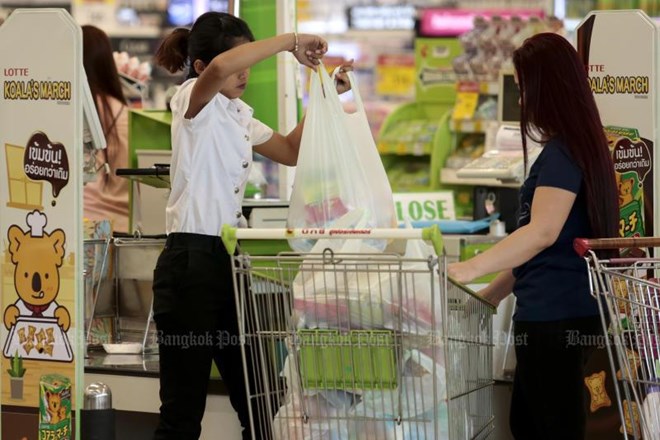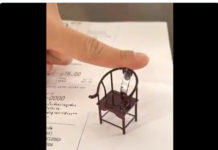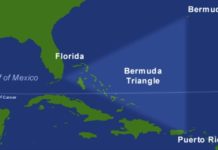A plastic bag ban that came into effect last year in #Thailand, to force shoppers to go green, is threatening to sink makers of environmentally-friendly reusable bags
An agreement between the Thai government and major retailers across Thailand to stop providing free single-use shopping plastic bags came into effect on Jan 1 following publicity surrounding the deaths of marine life that had consumed plastic bags and a subsequent intense campaign against the products.
“The ban is the only way we can tackle the issue,” said Dr Thon Thamrongnawasawat, a marine biology professor at Kasetsart University, who is clearly unable to process the bigger picture.
Dr Thon, who helped the government draft the roadmap to ban and limit plastic products in Thailand, added: “Next to go are plastic straws and single-use plastic cups.”
Others, however, argue that most shoppers recycle plastic bags at home by using them as waste baskets and will still need to buy plastic bin liners instead.
How else will people throw their crap away, if not down the nearest street drain?
People who shop in supermarkets don’t throw their plastic bags into the sea, they use them for something else. Tesco and Big C bags have never been the big problem in Thailand.
Instead it is all the local market and street food vendors whose packaging usually ends up in the street, drains and dolphin throats. But Dr Thon’s government ban does not apply to any of them.
And this is before we look at the environmental impact on the planet’s trees, as more are cut down to provide paper replacements.
Something the Thai government, and Dr Thon, have clearly failed to consider during their ‘knee-jerk’ reaction to a couple of adverse news stories about litter during 2019.
Perhaps we should ask Dr Thon, the esteemed Marine Biologist, exactly how many Central Festival, Terminal 21 or Tesco bags were found in the stomachs of marine life compared to Mama Noodles bags and Styrofoam bowls.
Now, as many equally thoughtless environmentalists are hailing the initiative, Thailand’s 1,000 plastic bag factories are suffering from the ban with many expecting to close down in months if the government does not provide some form of assistance.
“The effects are really severe,” said Mr Naphat Thipthanakit, vice president of the Thai Plastic Industries Association and the owner of a plastic bag factory near Bangkok which employs 160 workers.
Three in four of Mr Naphat’s customers are retail chains and include malls, coffee shops and restaurants that joined the “Everyday Say No to Plastic Bags” alliance.
They have stopped ordering plastic bags from his factory since October last year, resulting in a loss of most of his 14 million baht ($ 624,840) monthly revenue.
“The problem lies with the government’s unclear messages and plans,” he said, pointing out that the bags his factory makes can be reused many times, as they are up to 50 microns thick.
But retailers just stopped ordering the bags.
“It’s the thin single-use plastic bags of 12 microns that create problems for the environment, not the thicker bags like ours,” he added.
According to Mr Naphat, to revamp the machinery so the factory can manufacture other plastic products would cost too much.
“I’d better give up on business and just retire. To reap the benefits of new investments will take too long for me,” the 60-year-old, who has been in the trade for over 40 years, said.
To make matters worse for the manufacturers, eight TV channels signed an agreement with the Ministry of Natural Resources and Environment on Jan 2 to blur images and footages of single-use plastic bags.
Calling the censorship “very unfair,” Mr Apiphop Phungchaikul, deputy secretary-general of the Federation of Thai Industries, said the current initiative is not the right answer, and that the key is to properly manage plastic waste.
The ban has sparked a chain reaction that has resulted in about a 30 per cent drop in customers, according to Mr Apiphop. It has forced manufacturers to slash their prices to woo shops that have yet to impose the ban.
The wholesale price is now 48 baht per kilogram compared to about 53-54 baht early last year, said Mr Tanatchai Lertboonyaphan, manager of Thai Hong Plastic.
His company supplies bags to mainly small groceries that have yet to participate in the programme.
“I predict that half of all the plastic bag factories will shut down in a few years,” he said. – Albert Jack









































